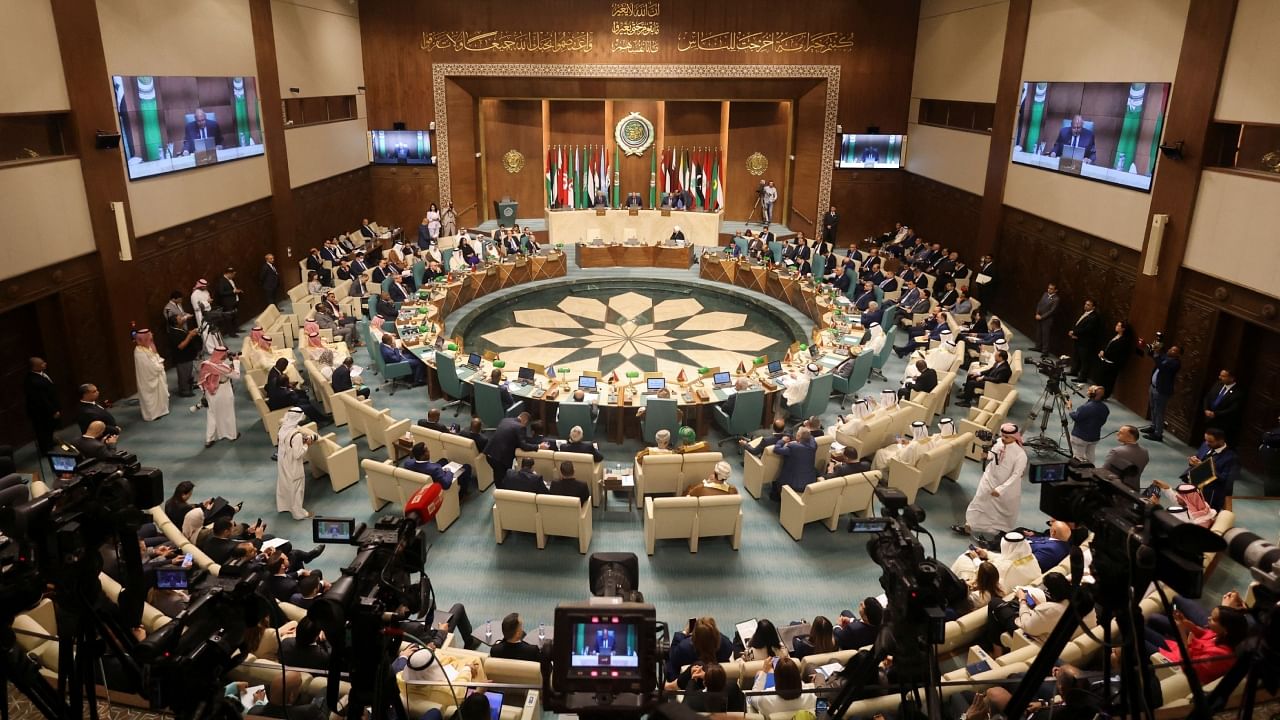
The Arab League on Sunday welcomed back Syria's government, ending a more than decade-long suspension and securing President Bashar al-Assad's return to the Arab fold after years of isolation.
In November 2011, the 22-member body suspended Damascus over its crackdown on peaceful protests which began earlier that year and which spiralled into a civil conflict that has killed more than 500,000 people, displaced millions and battered the country's infrastructure and industry.
While the front lines have mostly quietened, large parts of the country's north remain outside government control, and no political solution has yet been reached to the 12-year-old conflict.
"Government delegations from the Syrian Arab Republic will resume their participation in Arab League meetings" starting Sunday, said a unanimous decision by the group's foreign ministers.
Assad has been politically isolated since the war began, but recent weeks have seen a flurry of diplomatic activity ahead of an Arab League summit in the Saudi city of Jeddah on May 19.
The ministers in a statement emphasised their "keenness to launch a leading Arab role in efforts to resolve" the Syria crisis and its "humanitarian, security and political consequences", noting that humanitarian aid must reach "all those in need".
They also agreed to form a ministerial committee to continue "direct dialogue with the Syrian government in order to reach a comprehensive solution".
Several Arab countries cut ties with Damascus early in the conflict, betting on Assad's demise, while some including Qatar and Saudi Arabia provided support to the Syrian opposition.
The last Arab League summit Assad attended was in 2010, while the opposition attended the pan-Arab group's summit in Doha in 2013, sparking a furious reaction from Damascus.
Regional capitals have gradually been warming to Assad as he has stubbornly held onto power and clawed back territory lost earlier in the conflict with crucial support from Iran and Russia.
The United Arab Emirates, which re-established ties in late 2018, has been leading the recent charge to reintegrate Damascus into the Arab fold.
A February 6 earthquake that wreaked devastation in Turkey and Syria sparked Arab outreach to Assad's government, while intensified diplomatic activity has been underway in the region since a March decision by rivals Saudi Arabia and Iran to resume ties.
In March, Saudi state media said Riyadh and Damascus were in talks on resuming consular services, and in April, Saudi Foreign Minister Prince Faisal bin Farhan made the first visit to Damascus by an official from the kingdom since the start of the war.
That meeting came less than a week after Syrian Foreign Minister Faisal Mekdad visited Saudi Arabia, also on the first such visit since the conflict began.
Mekdad has visited a string of Arab countries including in recent weeks in a diplomatic push, including to Algeria, Tunisia and Egypt.
On Monday, he attended talks in Amman with foreign ministers from Jordan, Saudi Arabia, Iraq and Egypt to discuss the long-running conflict.
In April, nine Arab countries including Gulf states meet in Saudi Arabia to discuss ending Syria's long spell in the diplomatic wilderness and its possible return to the Arab League.